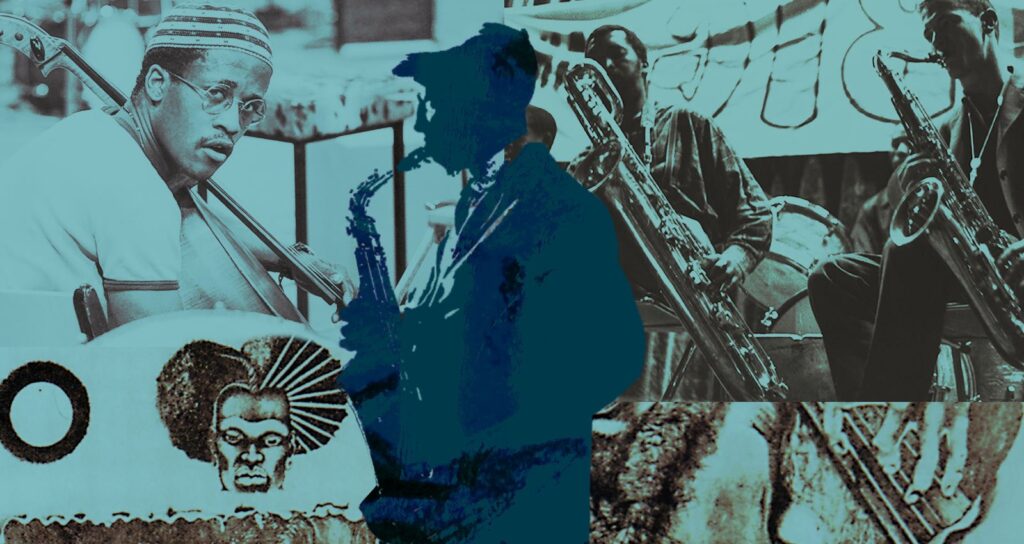
One of a number of times I was in London back in the day, I hooked up and hung out with Dudu Pukwana. I believe that was in the eighties, if memory serves. A couple of years after that, I interviewed at length Hugh Masekela and also hung out with him at a jazz festival in St. Lucia, the West Indies. And then there was the great Abdullah Ibrahim; I produced him in a solo concert at the New Orleans Museum of Art–it was an all acoustic affair, no mikes, no bank of lights, nothing between music and the audience. I have always liked South Africa and South African jazz. Felt a deep kinship.
I could go on (and on) but what I want to feature is this amazing overview of a particular period of South African jazz in exile.
Exile. Easy to say. Often lovely to listen to. But. A deeply troubling existence. Exile hurts. In so many, many ways. Hurts to the bone. To the heart. To the soul. And at times leaves one totally bereft of any hope of ever seeing home again. You make alliances, forge partnerships, small settlements with one’s soul–you do so if you are successful. Most days you exist in a blue funk.
Yes, that’s it. The blue funk of exile. That’s what attracted me to Dudu, precisely because growing up Black in the United States was a kind of exile. A blue funk of exile. Our blues does not come to us naturally, it comes from a long (and terrible) history of surviving in exile from Africa. The exile has been so long that this other place is now home.
That is what those of us in the western hemisphere had in common with our exiled South African sisters and brothers in Britain, and indeed, throughout Europe. The bond of Blacks in exile. So long in exile–our history of exile almost along the same timeline.
South Africa and the deep south of America, in the 20th century had a common thread binding us. A thread we instinctively could relate to. Yes, I know most bloods in America have our origins in West Africa, but right now I am specifically talking about a psychological bond of English-speaking Blackness in Euro-centric exile. Especially, the dreary clime of London town, and related environs.
Hanging with Dudu I felt it. How terrible to be so far gone from home and yet struggle to make a new home. Terrible.
Well, anyway, you can hear it in the music. Check out this detailed essay. There is a specific focus on the historic Capetown-based band, The Blue Notes: pianist Chris McGregor, saxophonist Dudu Pukwana, trumpeter Mongezi Feza, bassist Johnny Mbizo Dyani, and drummer Louis Moholo. Others are covered as well, but the Blue Notes was the major unit.
Of course, things are not the same now, but there was a time, a terrible time. A time of amputation. A time when we were not home but living. . . or should I say “surviving”? The blue funk of exile smelling up our eyes. Clouding our voices. The way we sang. The instruments we played. Our lost souls. Struggling to survive exile.
